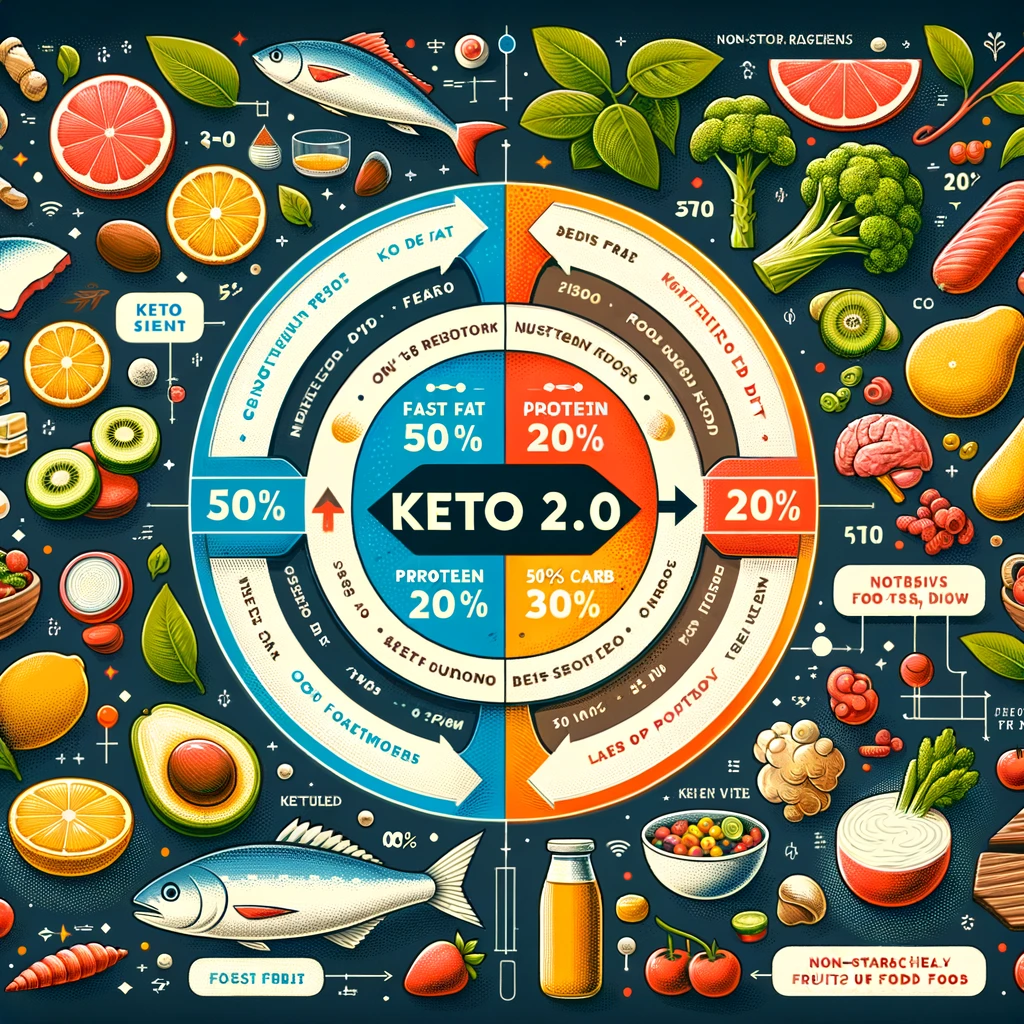Scott Keatley RD CDN

Keto 2.0 Is Here to Make the Low-Carb Diet Way Better for You—And Easier to Follow
Scott Keatley, R.D., of Keatley Medical Nutrition Therapy, describes Keto 2.0 as a less strict version of the original ketogenic diet. In the original keto diet, individuals typically consume 60-75% of their calories from fat, 15-30% from protein, and 5-10% from carbohydrates, striving to limit their daily carb intake to no more than 50 grams. Keto 2.0 modifies this approach by suggesting 50% of calories from fat, 30% from protein, and 20% from carbs, effectively doubling the allowable carb intake to about 100 grams daily on a 2,000 calorie diet. Keatley notes that this increase in carb allowance means Keto 2.0 does not induce ketosis, differentiating it significantly from the traditional keto diet. He emphasizes that Keto 2.0 is more akin to a low-carbohydrate Mediterranean diet, encouraging a diversity of nutrients through increased consumption of fruits, vegetables, lean proteins, and fiber-rich carbs. Keatley advocates for obtaining carbs from healthier, fiber-rich sources and highlights the potential of Keto 2.0 for promoting healthy weight loss through a balanced diet that includes non-starchy fruits and vegetables, lean meats like fish, and an improved intake of fiber.